The food industry is at the forefront of adopting sustainable practices, and one area gaining attention is the use of sustainable lubricants. These eco-friendly alternatives offer a combination of performance, safety, and environmental benefits, making them a valuable solution for modern food production facilities. This blog explores the role of sustainable lubricants in the food industry, their benefits, and how they align with global sustainability goals.
Understanding Sustainable Lubricants
Sustainable lubricants are specially formulated to minimise environmental impact while delivering high performance. Unlike traditional lubricants derived from non-renewable petroleum sources, sustainable options are often made from renewable resources, such as vegetable oils or synthetic esters, and are designed to be biodegradable. Their ability to decompose reduces the risk of long-term environmental contamination, particularly in sensitive areas like food processing plants.
To ensure safety in the food industry, sustainable lubricants used near food must meet stringent regulations and certifications, such as NSF H1 certification, which guarantees they are safe for incidental contact with food products.
Benefits of Sustainable Lubricants in the Food Industry
Sustainable lubricants offer multiple advantages for food manufacturers:
1. Environmental Responsibility
As environmental regulations tighten and sustainability becomes a priority, sustainable lubricants help food companies minimise their ecological footprint. These lubricants significantly reduce the impact of accidental leaks or spills, preventing soil and water contamination.
2. Improved Safety
NSF H1-certified sustainable lubricants meet food-grade safety standards, ensuring that accidental contact with food products does not pose a health risk. This is crucial for maintaining compliance with global food safety regulations.
3. High Performance
Modern sustainable lubricants are engineered to deliver performance on par with, or even superior to, conventional options. They offer excellent lubrication, thermal stability, and corrosion protection, even in demanding environments.
4. Cost Efficiency
Although sustainable lubricants may have a higher upfront cost, their benefits often translate to long-term savings. Enhanced equipment protection, reduced environmental cleanup costs, and alignment with sustainability goals contribute to a positive return on investment.
5. Regulatory Compliance
Using sustainable lubricants helps companies meet environmental standards and achieve certifications that demonstrate their commitment to sustainability, such as ISO 14001.
Applications of Sustainable Lubricants in Food Manufacturing
Sustainable lubricants can be used across various equipment and processes in food production, including:
• Bearings and Chains: Lubricants designed to reduce friction and wear in critical moving parts.
• Conveyor Belts: Ensuring smooth operation in systems that handle packaged and unpackaged food products.
• Hydraulic Systems: Sustainable hydraulic fluids are ideal for equipment that operates in environmentally sensitive areas.
• Gearboxes: High-performance sustainable gear oils provide reliable protection and efficiency.
Overcoming Challenges with Sustainable Lubricants
While sustainable lubricants offer numerous benefits, there are some challenges to address:
• Temperature Sensitivity: Some sustainable lubricants may have lower temperature stability compared to synthetic options. Advanced formulations are now available to mitigate this issue.
• Higher Initial Costs: Although more expensive initially, the long-term savings and environmental benefits often outweigh the investment.
• Storage and Handling: Sustainable lubricants may require specific storage conditions to maintain their properties over time.
How Activate Lubricants Supports Sustainability
At Activate Lubricants, we understand the importance of sustainability in the food industry. Our range of sustainable, NSF-certified lubricants combines safety, performance, and environmental responsibility. Whether you need greases, oils, or hydraulic fluids, our solutions are tailored to meet the unique challenges of food production environments.
Conclusion
The transition to sustainable lubricants in the food industry represents a significant step toward a more sustainable future. By reducing environmental impact, ensuring food safety, and delivering high performance, these lubricants align perfectly with the goals of modern food manufacturers. With the right products and practices, food companies can enhance their operations while contributing to a healthier planet.
For expert guidance and innovative solutions, contact Activate Lubricants today and take the next step in your sustainability journey.









